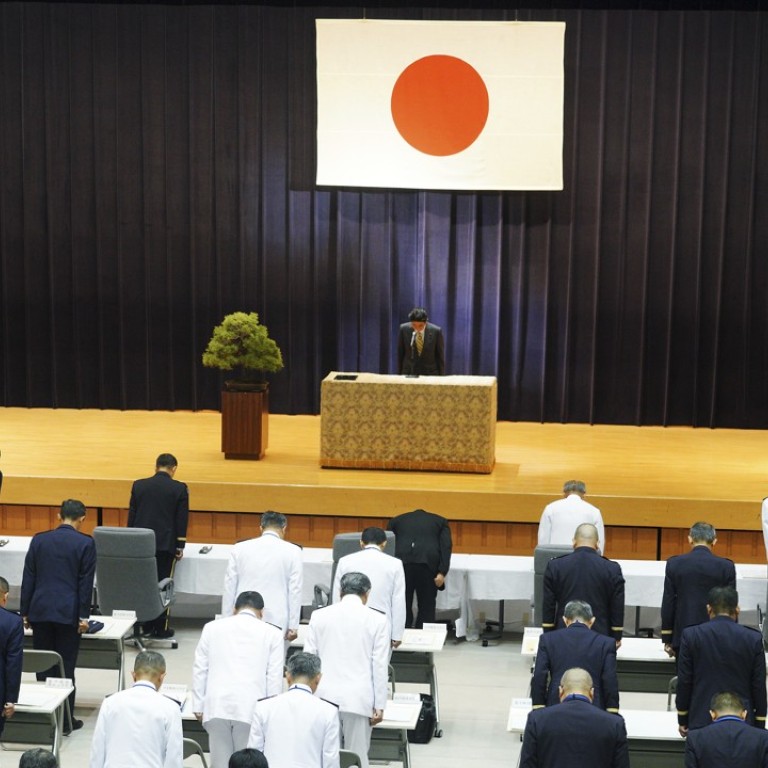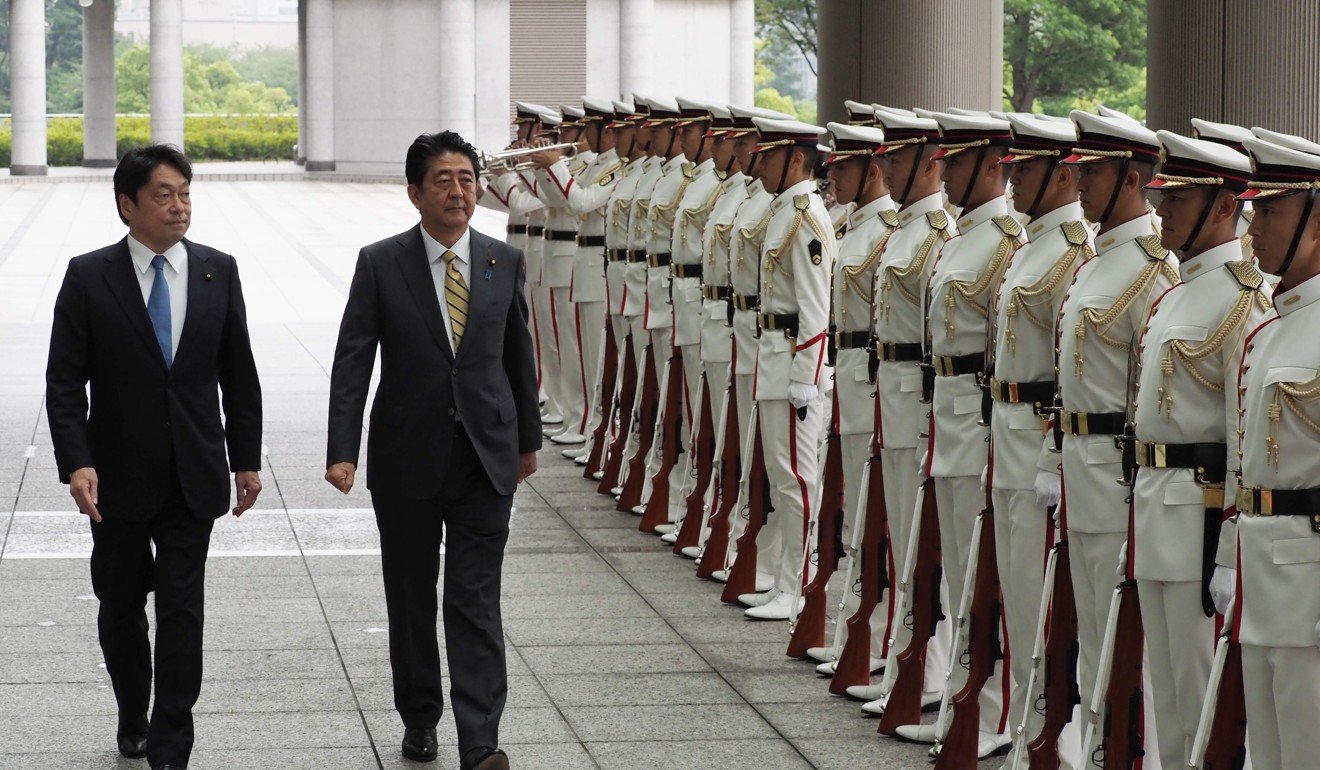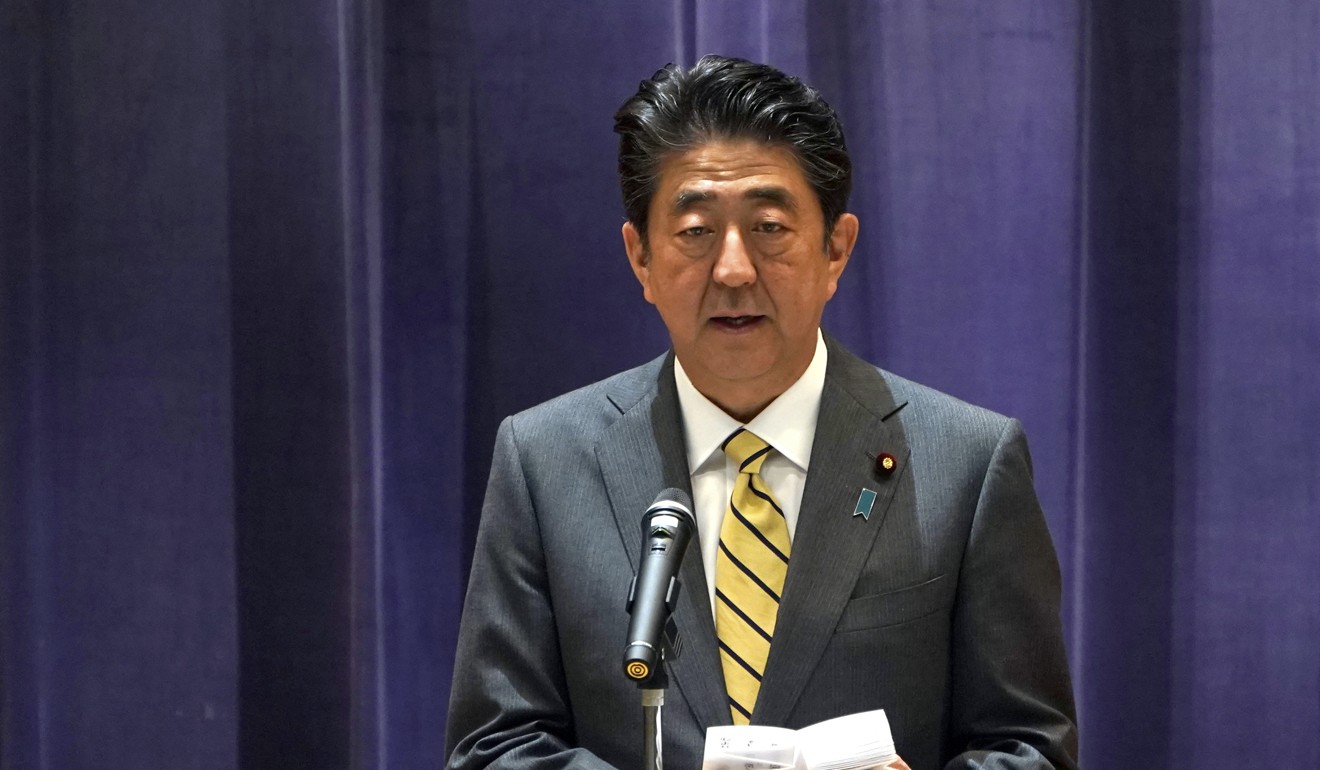
Shinzo Abe indicates he wants to revise Japan’s pacifist constitution
In a speech to military officers, Japanese PM says the security situation has grown severe at a much faster pace than five years ago
Less than three weeks before the ruling party leadership election, Prime Minister Shinzo Abe on Monday again indicated his resolve – in a speech to Self Defence Force officers – to seek to amend Japan’s pacifist constitution.
In a speech to some 180 senior SDF officers, Abe said, “Arranging an environment where all SDF personnel can fulfil their duties with strong pride is the responsibility of politicians living in the present. I am determined to fully carry out my duty.”
However in his speech to the SDF’s top brass at the defence Ministry, Abe stopped short of directly mentioning amending the constitution, which took effect in 1947.

But repeatedly over the past year, Abe has called for adding an explicit reference to the SDF in the war-renouncing Article 9, so that there is no room to view Japan’s military as “unconstitutional”.
Abe is widely projected to win the September 20 Liberal Democratic Party leadership election, putting him in position to become Japan’s longest serving prime minister ever.
Regarding the national debate on the SDF’s legitimacy, Abe said he, as the top SDF commander and a lawmaker, is “ashamed of thoughtless criticism” levelled at the nearly 250,000 man force.
Last month, Abe said his ruling party should submit constitutional revision proposals to an extraordinary Diet session expected to be convened this autumn.
In Monday’s speech, Abe also stressed the significance of reviewing the country’s defence build-up guidelines, which set defence capability targets that Japan should achieve over the next decade.
Watch: China redeploys surface-to-air missiles in South China Sea
By the end of this year, the Abe government aims to revise the National defence programme Guidelines, which were last approved in December 2013, and the Mid-Term defence programme, which specifies a five-year defence spending and procurement plan.
Abe said overhauling the guidelines will be “crucially important as it will decide the future of Japan’s security” and underlined the necessity to boost Japan’s defence capabilities in cyberspace, outer space and electronic warfare.
The prime minister said the security situation surrounding Japan has grown severe at a much faster pace than five years ago, when Japan set the current guidelines.
“We have to break away from the norm of completing new defence capabilities in the span of five to 10 years. What was common sense before is no longer valid,” he said.
In its annual white paper released last week, the defence ministry said North Korea’s nuclear weapon and missile programmes remain a serious threat to Tokyo despite the recent easing of tensions on the Korean Peninsula.
For the next financial year from April, the ministry has requested a record budget of 5.3 trillion yen (US$47.7 billion), including costs to introduce a pair of US-developed land-based Aegis Ashore missile defence batteries to counter North Korea’s missile threat.
In the LDP leadership race, Abe has consolidated support from a majority of LDP lawmakers, while former Defence Minister Shigeru Ishiba, the only other candidate, is striving to widen his support.

The five LDP factions that support Abe held a rally Monday. Altogether they include 346 party lawmakers, accounting for around 85 per cent of the 405 votes to be cast by the party’s Diet members.
Internal affairs minister Seiko Noda has conveyed her intention to support Abe after she gave up on running for party leader after struggling to secure support from 20 LDP lawmakers necessary to register her candidacy.
Meanwhile, only 18 lawmakers attended a meeting for Ishiba on Monday. The former secretary general of the party is counting on attracting as many votes as possible from rank-and-file LDP members, who will also cast ballots in the election.
The winner will be the candidate who attracts a simple majority of the total 810 votes – 405 votes cast by legislators and the same number by rank-and-file members.

